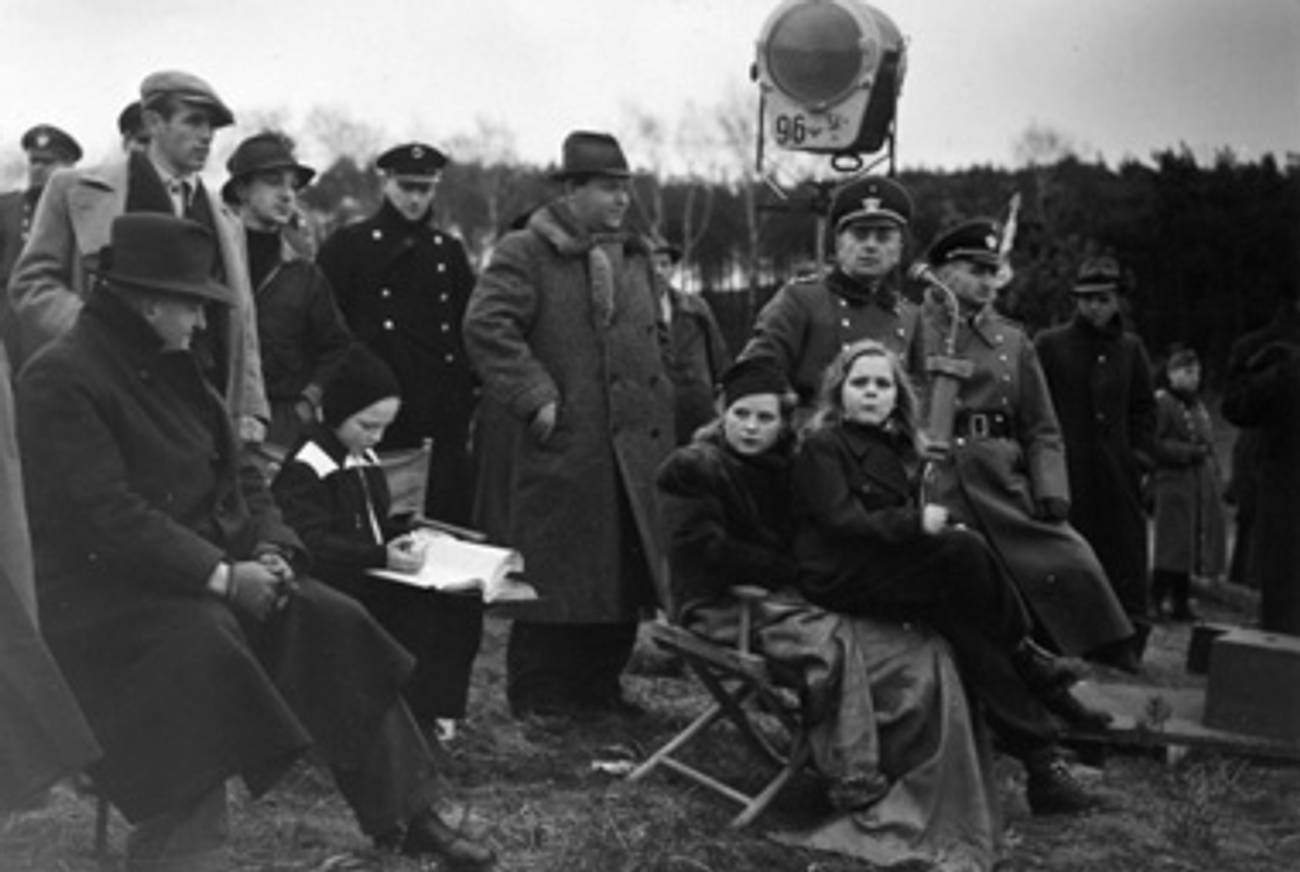Heavy Burden
A new documentary discusses the legacy of a Nazi filmmaker with his heirs




In 1939, Joseph Goebbels commissioned his favorite film director, Veit Harlan, to make an entertainment suitable for wartime. The result was Jew Süss, a historical drama about the Jewish banker Joseph Süss Oppenheimer, who was hanged in 1738 on charges of treason against a German duchy. The choice of subject matter was a retort to a British anti-Nazi movie based on a novel by the German-Jewish writer Lion Feuchtwanger in which Oppenheimer is depicted as a martyr—both with the same title. Harlan warped the historical figure into a predator who rapes both the public trust and a helpless Aryan girl, played by Harlan’s own wife, the Swedish ingénue Kristina Söderbaum, then Germany’s top-earning actress.
When the movie premiered, in the fall of 1940, 20 million Germans packed cinemas to see it. Audiences jeered lustily at scenes of bedraggled Jews—actual residents of the Prague ghetto compelled to serve as extras—carting their possessions away after they are banished in response to Oppenheimer’s perfidy. Goebbels, who wrote in his diaries that Jew Süss was “the anti-Semitic film,” ordered screenings for all SS units during the winter lull in fighting. But after the war, the victorious Allied forces proved less impressed. Harlan found himself charged with being an accessory to crimes against humanity. In court, Harlan claimed he had no choice but to do Goebbels’s bidding. He was acquitted, but, as he wrote in a draft of his autobiography, the “the shadow of Jew Süss will not vanish.” But the film did; it was removed from public circulation under postwar de-nazification laws. Harlan returned to filmmaking in the 1950s, but, as a New York Times correspondent wrote in 1951, “the reek of the gas ovens is inseparably associated with his name.”
Harlan died in Capri in 1964 without ever acknowledging the impact of his work—despite the fact that he was once married to a Jewish actress, Dora Gershon, who was killed at Auschwitz. The task of grappling with Veit Harlan’s legacy has now fallen to his childen, their children, and their close relatives, the subjects of Harlan: In the Shadow of Jew Süss, a documentary by the German filmmaker Felix Moeller opening today at the Film Forum in New York.
Harlan’s heirs represent an astoundingly broad range of opinion: from borderline revisionism to a full embrace of Jews and Judaism. Not surprisingly, they disagree about whether their father was motivated by a commitment to Nazism or by simple opportunism. “War games and films are now sponsored by the American military,” argues Kristian Harlan, one of the director’s two sons with Söderbaum. “Not much has changed.” And while his brother Caspar describes Veit as a “despotic” husband to their mother, he nonetheless insists that his father was coerced to make Jew Süss and didn’t believe in Nazi principles.But for Moeller, what Veit Harlan actually believed doesn’t much matter: The point is, Harlan made a film, and its consequences have been real.
Only Harlan’s eldest son, Thomas, is old enough to carry any real personal guilt. Born in 1929 to Harlan and his first wife, Hilde Körber, Thomas joined the Hitler Youth as a teenager. As an adult, though, he publicly repudiated his father and worked for a time researching Nazi war crimes in Poland. But his inability to convince his father to recant continues to haunt him. “I was prepared to take responsibility,” he says. “It was self-evident to me that I was answerable along with him … but I don’t know how he saw it. I think he really took me as an enemy.”
Thomas’s two younger sisters, Maria and Susanne, were only old enough to know they needed to look smart when their father’s Nazi patrons came to visit. Yet both, for different reasons, chose to marry men with Jewish blood. Maria, who at one point in the film angrily recounts how her father and stepmother were asked to leave a theater after the war because the leading lady refused to perform for them, nonetheless says she felt impelled to get involved with a man whose Jewish father had been killed by the Nazis because she felt sorry for him. “I said, ‘He has suffered, and we have to help him,’ ” she explains. “I thought I was doing a good deed.”
Her sister Susanne, who committed suicide in 1989, had other motives. “My mother wanted away, away, away from this history, from her father, from everything it meant to her,” Susanne’s daughter, Jessica Jacoby, says in the film. Susanne threw herself headlong into Judaism after meeting Claude Jacoby, who managed to flee from Germany to New Orleans in 1938 but returned to his native country as a journalist with the American Army after the war. Claude Jacoby died in 1964, of a heart attack; in 1967, Susanne left for Israel but ultimately returned to Berlin, where Jessica Jacoby is now a writer for the city’s Jewish newspaper, the Jüdische Allgemeine.
“I belong to a family that the Nazi period divided into perpetrators and victims,” Jacoby says in the film. “You could say that insofar as Jew Süss was a call to persecute and annihilate not just the Jews of Germany but of Europe, it cost my other grandfather and grandmother their lives.”
Allison Hoffman is a senior editor at Tablet Magazine. Her Twitter feed is @allisont_dc.
Allison Hoffman is a senior editor at Tablet Magazine. Her Twitter feed is @allisont_dc.